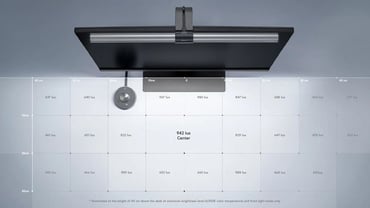Custom PC Case Materials: Aluminum, Steel, and More
Table of Contents
Introduction: The Importance of Custom PC Case Materials
When it comes to building a custom PC, choosing the right case materials is essential. The materials used in PC case construction can greatly impact the performance, durability, and overall aesthetics of your custom rig. In this article, we will explore the importance of custom PC case materials, focusing on two popular options: aluminum and steel.
1. Aluminum:
- Lightweight: Aluminum is known for its lightweight properties, making it an excellent choice for those who prioritize portability.
- Thermal Conductivity: Aluminum has excellent heat dissipation properties, helping to keep your components cool during intensive tasks.
- Aesthetics: Aluminum cases often have sleek and modern designs, adding a touch of elegance to your custom PC setup.
- Cost: While aluminum cases can be more expensive than other materials, their durability and performance benefits make them a worthwhile investment.
2. Steel:
- Strength and Durability: Steel is known for its strength, providing excellent protection for your components and ensuring long-lasting performance.
- Noise Reduction: Steel cases have the advantage of dampening noise, making them a great choice for those who prefer a quieter computing experience.
- Customization: Steel cases are often easier to modify and customize, allowing you to personalize your PC setup according to your preferences.
- Cost: Steel cases are generally more affordable compared to aluminum, making them a popular choice for budget-conscious builders.
When selecting the right custom PC case material, it’s important to consider your specific needs and priorities. Whether you prioritize portability, heat dissipation, aesthetics, durability, noise reduction, or customization, there is a case material that will suit your requirements. By understanding the importance of custom PC case materials like aluminum and steel, you can make an informed decision and build a custom PC that meets your expectations in terms of performance and design.
Aluminum: Lightweight and Durable Choice
When it comes to choosing the material for your custom PC case, one option that stands out is aluminum. Known for its exceptional combination of lightweight design and durability, aluminum has become a popular choice among PC enthusiasts.
Here are some key reasons why aluminum is a fantastic option for your custom PC case:
- Lightweight: Aluminum is significantly lighter than other commonly used materials like steel. This lightweight characteristic makes it easier to transport and handle your PC case, especially if you frequently attend LAN parties or need to move your setup around.
- Durability: Despite its lightweight nature, aluminum is surprisingly durable. It can withstand accidental bumps or impacts better than materials like plastic. This durability ensures that your PC case will last longer and remain intact, even in demanding environments.
- Heat Dissipation: Aluminum has excellent thermal conductivity, meaning it efficiently dissipates heat generated by your PC components. This property helps to keep your system cool and prevents overheating, which is crucial for optimal performance and longevity.
- Design Flexibility: Aluminum is a malleable material, allowing for more intricate and customizable designs. This flexibility gives you the freedom to create a unique and visually appealing PC case that matches your personal style.
- Corrosion Resistance: Aluminum is naturally resistant to corrosion, making it an excellent choice for PC cases that may be exposed to different environmental conditions. This resistance ensures that your case will remain in pristine condition for years to come.
Overall, aluminum offers a winning combination of lightweight construction, durability, heat dissipation, design flexibility, and corrosion resistance. These qualities make it an ideal material for custom PC cases, providing both practical and aesthetic benefits.
Steel: Enhanced Strength and Stability
When it comes to custom PC case materials, steel is a popular choice due to its enhanced strength and stability. With its durability and rigidity, steel offers several advantages for PC builders and enthusiasts.
Here are some key benefits of using steel for your custom PC case:
- Strength: Steel is known for its exceptional strength, making it a reliable option for housing delicate and expensive computer components. It can withstand heavy loads and resist bending or warping, ensuring the safety and stability of your PC.
- Durability: Steel is highly resistant to wear and tear, making it a long-lasting material for your PC case. It can withstand impacts, vibrations, and other external forces, protecting your components from damage.
- Heat Dissipation: Steel has excellent thermal conductivity, allowing it to effectively dissipate heat generated by your PC’s components. This helps in maintaining optimal operating temperatures and prevents overheating, which can affect the performance and lifespan of your system.
- Noise Reduction: The density of steel helps in minimizing noise generated by internal components, providing a quieter computing experience. This is especially beneficial for users who prioritize a silent or low-noise PC setup.
- Customization: Steel can be easily modified and customized to suit your specific needs. It can be cut, drilled, and painted without compromising its structural integrity, allowing for unique designs and personalization options.
While steel offers numerous advantages, it’s worth considering that it can be heavier compared to other materials, which might affect portability. Additionally, steel cases might require additional measures to prevent corrosion, such as proper ventilation and surface treatments.
In conclusion, if you prioritize strength, durability, heat dissipation, noise reduction, and customization options, a steel custom PC case might be the ideal choice for you. Its robust nature ensures the protection and longevity of your components, while also allowing for a personalized and reliable computing experience.
Alternative Materials: Exploring Other Options
While aluminum and steel are popular choices for custom PC cases, there are other materials worth considering. These alternative materials can offer unique advantages and help you create a one-of-a-kind computer setup. Let’s explore some of these options:
- Wood: Wood is a versatile material that can provide a warm and natural aesthetic to your PC case. It also has excellent acoustic properties, reducing noise levels from fans and components. However, wood may require more maintenance and can be less durable compared to metals.
- Glass: Using glass panels in your PC case can showcase your components and create a visually stunning display. Glass is highly transparent, allowing you to display RGB lighting and intricate designs. However, it may be more prone to scratches and fingerprints, requiring regular cleaning.
- Acrylic: Acrylic is a lightweight and budget-friendly alternative to glass. It is durable, easy to mold, and can be transparent or tinted in various colors. Acrylic cases often feature unique shapes and designs, making them ideal for custom builds. However, it may be more prone to scratching and can be less heat-resistant compared to other materials.
- Carbon Fiber: Carbon fiber is a high-performance material known for its strength and lightweight properties. It offers excellent thermal conductivity and can effectively dissipate heat from your components. Carbon fiber cases are often used in high-end gaming setups, but they can be more expensive than other options.
- Plastic: Although not as durable as metals, plastic cases can be a cost-effective choice. They come in various colors and designs, and some plastics offer good heat resistance. However, they may not provide the same level of protection and stability as metal cases.
When considering alternative materials for your custom PC case, it’s essential to assess your priorities. Think about factors such as aesthetics, durability, maintenance, and budget. Each material has its own set of advantages and limitations, so choose the one that aligns with your preferences and requirements.
Conclusion: Choosing the Right Material for Your Custom PC Case
When it comes to building a custom PC, the choice of material for your PC case is an important consideration. The right material can impact the aesthetics, durability, and overall performance of your build. In this article, we have explored two popular materials for custom PC cases: aluminum and steel. While both materials have their advantages and disadvantages, the ultimate choice depends on your specific needs and preferences.
Aluminum is a lightweight and durable material that offers excellent heat dissipation. It is ideal for those looking for a sleek and modern design, as aluminum cases often come with a brushed or anodized finish. Aluminum cases are also known for their high-quality construction and resistance to corrosion. However, they tend to be more expensive compared to steel cases and may not offer as much protection against physical impacts.
On the other hand, steel is a sturdy and affordable material that provides better protection against accidental damage. Steel cases are heavier and often come with a more traditional design. They are less susceptible to dents and scratches, making them a suitable choice for those who prioritize durability. However, steel cases may not dissipate heat as efficiently as aluminum cases, which can be a concern for high-performance builds.
Ultimately, the choice between aluminum and steel comes down to your priorities. If you value aesthetics, heat dissipation, and are willing to invest a bit more, aluminum is the way to go. On the other hand, if durability and affordability are your main concerns, a steel case might be a better fit for your needs.
It’s also worth mentioning that there are other materials available in the market, such as tempered glass, acrylic, and even carbon fiber. These materials offer their unique advantages and can add a touch of luxury to your custom PC case. Consider your budget, build requirements, and personal preferences when exploring these alternatives.
- Aluminum: lightweight, excellent heat dissipation, sleek design, higher cost
- Steel: sturdy, affordable, better protection, heavier
- Tempered glass, acrylic, and carbon fiber: unique advantages, added luxury
Ultimately, choosing the right material for your custom PC case is crucial to ensure the longevity and performance of your build. Take into account factors such as aesthetics, durability, heat dissipation, and cost when making your decision. By carefully considering these factors, you can create a custom PC case that is not only functional but also reflects your personal style.
























